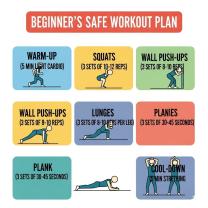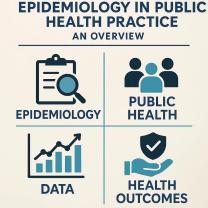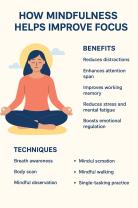What should you eat for anorexia?
I am not a healthcare professional, but I can offer general information. If you or someone you know is struggling with anorexia, it's crucial to seek professional help from healthcare providers, including nutritionists and mental health specialists. They can provide personalized guidance based on individual needs and health status.
However, I can provide some general nutritional considerations for individuals with anorexia:
Balanced Diet:
- Aim for a balanced and varied diet that includes a mix of carbohydrates, proteins, fats, vitamins, and minerals. Each of these nutrients plays a crucial role in supporting overall health.
Regular Meals and Snacks:
- Establish a regular eating routine with three main meals and snacks between meals. Consistency in meal timing can help regulate metabolism and energy levels.
Increase Caloric Intake:
- Gradually increase caloric intake to support weight restoration and overall health. This should be done under the guidance of a healthcare professional to ensure a safe and sustainable approach.
Include Protein-Rich Foods:
- Protein is essential for muscle repair and overall body function. Include sources of lean protein such as poultry, fish, beans, lentils, tofu, and dairy products.
Incorporate Healthy Fats:
- Include sources of healthy fats in the diet, such as avocados, nuts, seeds, and olive oil. Fats are important for energy and nutrient absorption.
Choose Whole Grains:
- Opt for whole grains like brown rice, quinoa, and whole wheat bread to provide complex carbohydrates, fiber, and essential nutrients.
Include a Variety of Vegetables and Fruits:
- Incorporate a colorful array of vegetables and fruits to ensure a broad spectrum of vitamins and minerals.
Stay Hydrated:
- Drink an adequate amount of water throughout the day to stay hydrated. Dehydration can have negative effects on overall health.
Consult a Nutritionist:
- Work with a registered dietitian or nutritionist who specializes in eating disorders. They can create an individualized meal plan based on nutritional needs, preferences, and health goals.
Monitor Progress:
- Regularly assess progress with healthcare professionals to make adjustments to the meal plan as needed.
It's important to approach nutritional recovery in collaboration with a healthcare team, as anorexia involves both physical and psychological components. Treatment plans may include medical monitoring, therapy, and nutritional counseling to address the complex nature of the disorder.
Anorexia recovery requires a comprehensive approach, with nutrition playing a crucial role. Here's how diet and nutrition support individuals with anorexia:
1. Dietary Recommendations:
- Focus on energy intake: Prioritize calorie-dense foods to increase weight and restore energy levels. Aim for gradual increases with guidance from a registered dietitian (RD).
- Balance macronutrients: Ensure adequate intake of proteins, carbohydrates, and healthy fats. Protein is essential for muscle repair, carbs provide energy, and healthy fats support brain function and satiety.
- Choose nutrient-rich foods: Prioritize whole grains, fruits, vegetables, and lean protein sources to provide essential vitamins, minerals, and fiber.
- Variety and frequency: Encourage small, frequent meals and snacks throughout the day to avoid overwhelming the digestive system. Introduce a wide variety of foods to combat food fears and prevent nutrient deficiencies.
- Personalization: Tailor the diet to individual preferences and avoid strict or restrictive food rules. Celebrate positive steps and progress.
2. Supporting Recovery:
- Physical health improvement: Adequate nutrition fosters energy, improves organ function, and strengthens the immune system.
- Psychological well-being: Eating regularly can reduce anxiety and improve mood, promoting a positive body image and self-esteem.
- Cognitive function: Nutrient deficiencies can affect focus and memory. Good nutrition supports cognitive rehabilitation and recovery.
- Reduced risk of complications: Healthy eating helps prevent malnutrition-related complications like osteoporosis, heart problems, and gastrointestinal issues.
3. Foods to Avoid:
- Focus on overall balance: Instead of strict "no-go" lists, emphasize a balanced diet and encourage gradual reintroduction of previously feared foods.
- Extreme restriction: Avoid strict elimination diets or unhealthy weight-loss tactics.
- Triggering foods: Pay attention to individual triggers and gradually work on incorporating those foods with support from a therapist or RD.
4. Balanced Diet:
- Foundational role: A balanced diet is the cornerstone of anorexia recovery, providing the necessary fuel for physical and mental healing.
- Normalizing eating patterns: Regular meals and healthy choices help establish a routine and challenge the distorted eating patterns associated with anorexia.
- Building trust with food: Reintroducing a variety of foods in a safe and supported environment helps rebuild trust with food and combat food phobias.
5. Nutritional Counseling:
- Individualized plans: RDs create personalized meal plans and provide specific recommendations based on individual needs and preferences.
- Education and support: They educate patients on nutrition fundamentals, dispel myths, and address fears around food.
- Motivation and accountability: Regular consultations provide encouragement and support, helping patients stay on track with their recovery goals.
- Collaboration with treatment team: RDs work alongside therapists and medical professionals to ensure a holistic approach to anorexia recovery.
Remember, anorexia recovery is a journey, and patience, compassion, and personalized support are key. Encourage individuals to seek professional guidance from an RD and prioritize a balanced diet for optimal physical and mental well-being.
Here are some resources for further information:
- National Eating Disorders Association (NEDA): https://www.nationaleatingdisorders.org/
- Academy of Nutrition and Dietetics: https://www.eatright.org/
- National Institute of Mental Health (NIMH): https://anad.org/about/
Please feel free to ask if you have any further questions.












